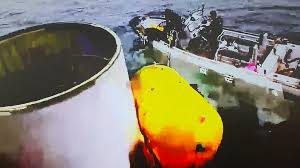Malligyong-1, a military espionage satellite launched by North Korea on May 31 after a brief “accident,” according to state media, caused it to crash into the ocean.
The military espionage satellite was given top priority by North Korean leader Kim Jong Un, who also personally oversaw some launch preparations. After the second-stage engine started abnormally during normal flight, the rocket plummeted into the water. Authorities in North Korea intend to perform a second launch as soon as is practical after carefully examining the flaws.
The satellite vanished from radar after the launch was observed by South Korea’s military, who also claimed that it crashed into the water as a result of aberrant flight. Japan and South Korea, who said it would violate UN sanctions barring Pyongyang from performing tests involving ballistic missile technology, harshly criticized the launch. Analysts contend that North Korea’s efforts to develop satellite launch capability are intended to serve as a cover for ICBM testing.
After the launch, Seoul city officials accidentally sent emergency text message alerts to citizens telling them to be ready to evacuate. The interior ministry swiftly clarified the advisory, stating that it had been issued mistakenly.
Experts are worried about the spy satellite’s launch. Former CIA analyst Soo Kim thinks that this launch may be a precursor to even more provocative actions by North Korea, possibly even a nuclear test. Since 1998, North Korea has launched five satellites, three of which instantly failed, and two of which may have entered orbit but have not been verified by another source.
Since diplomatic talks failed in 2019, North Korea has accelerated its military development. It has tested many prohibited weapons, including shooting several ICBMs in test mode. In his declaration that his nation is a “irreversible” nuclear power, Kim Jong Un also urged for an increase in the manufacturing of weapons.
The South Korean foreign ministry views the launch of the spy satellite as a breach of UN Security Council resolutions.










